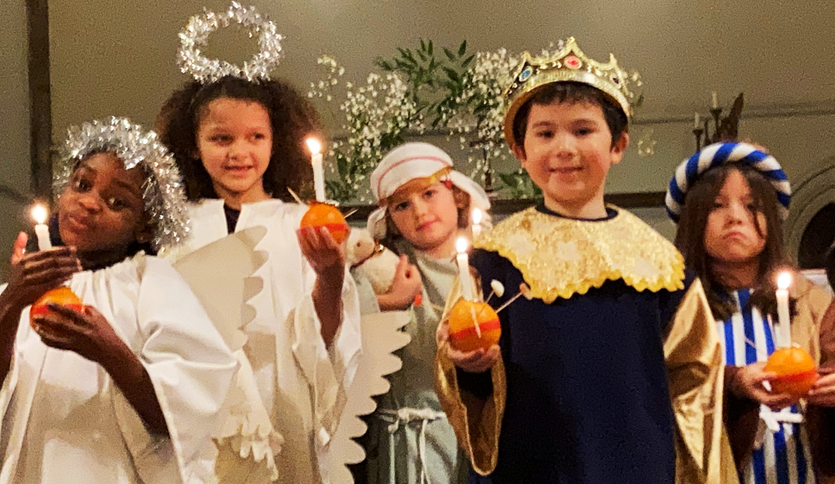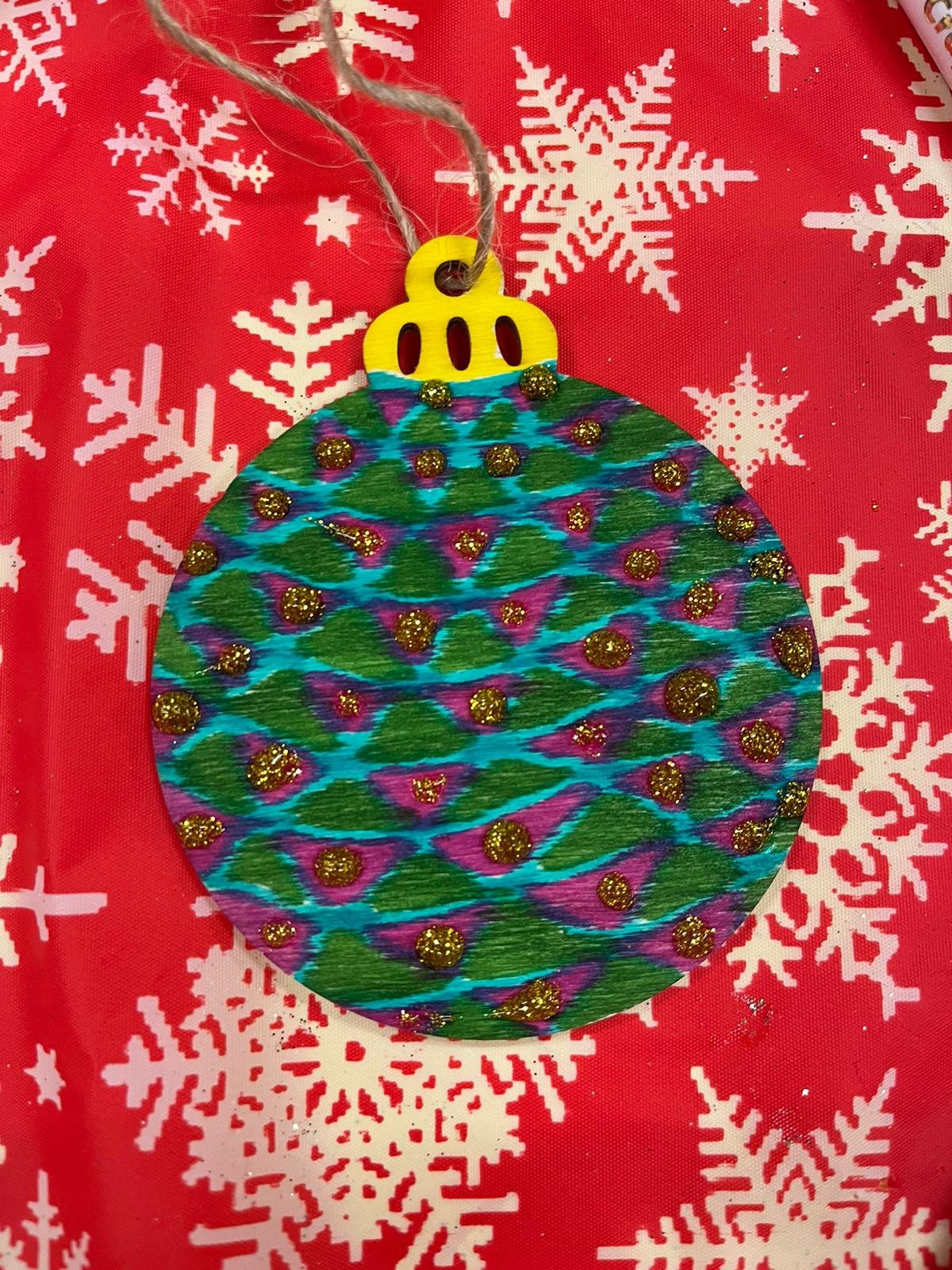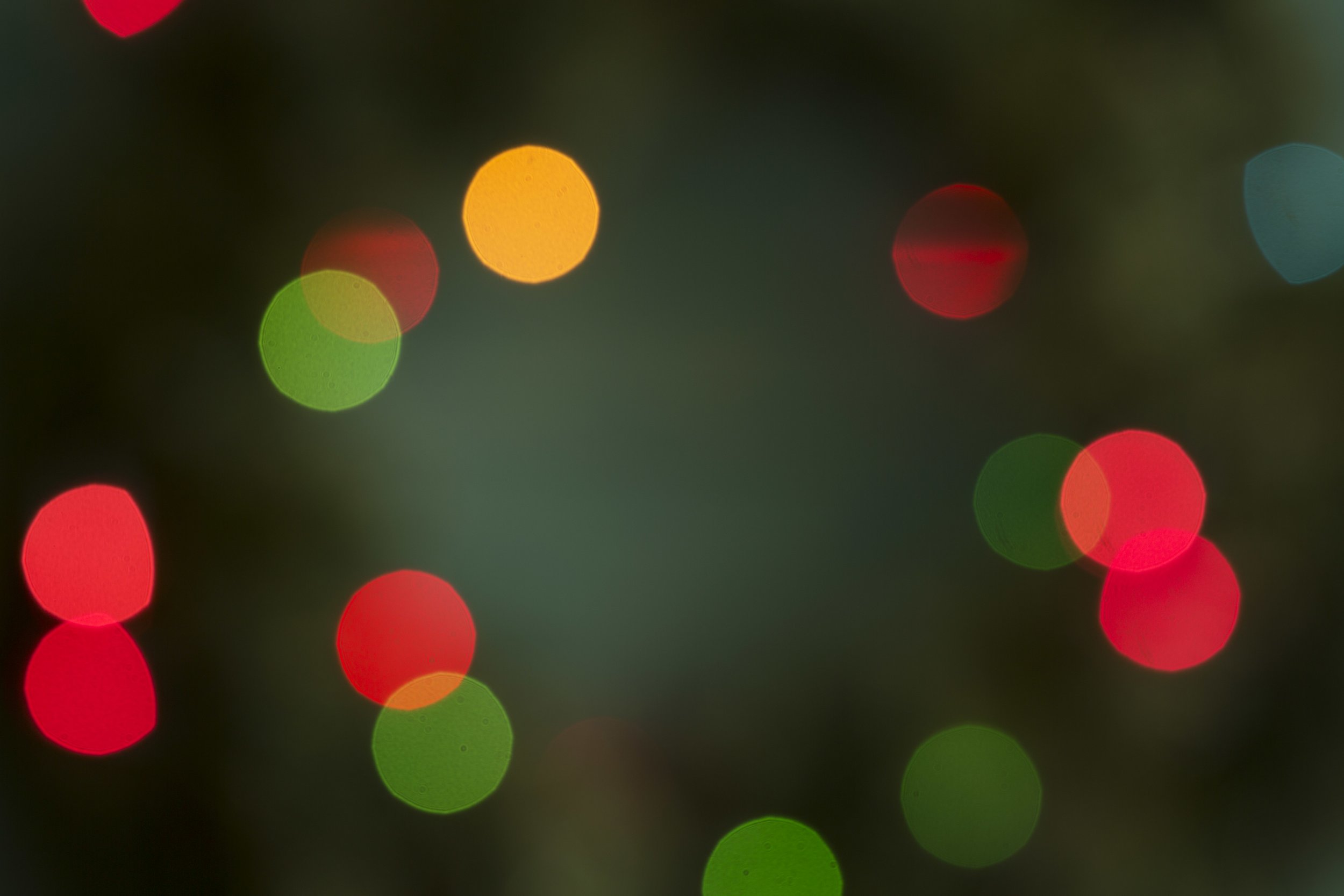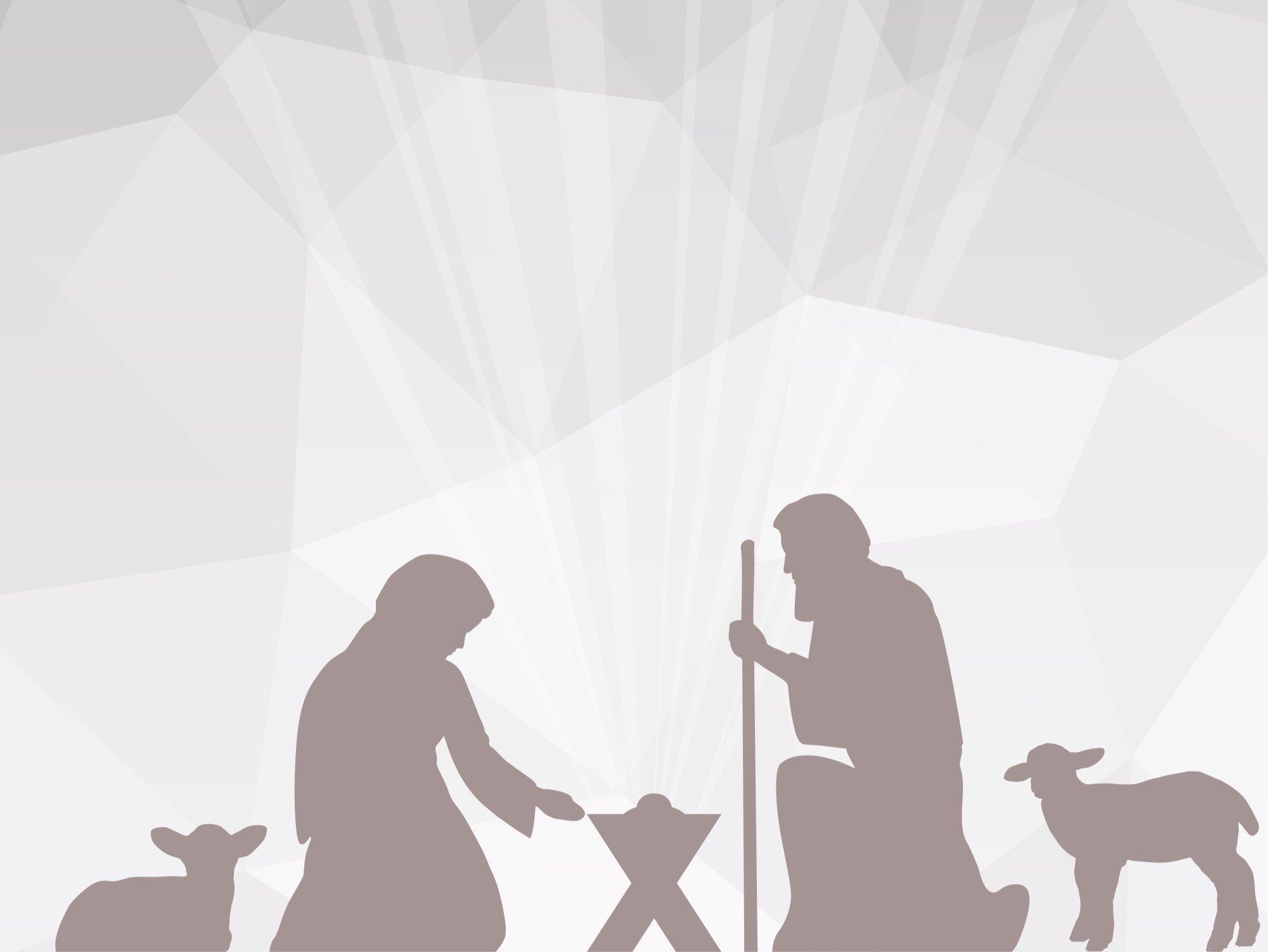
Christmas Festival Eucharist
When Christ comes, Isaiah 9:2-7 tell us: misery will end, the people will be freed, enemies will be vanquished. Yet, 2,000+ years on, there are an awful lot of people still struggling, still living in darkness.
Isaiah imagined that the Christ would be a ruler who would wield authority and the gospel, Luke 2:1-14, begins with those in authority: the emperor, the governor, the powerful but then presents us with their opposite: a tiny town in a regional backwater, a struggling family, a bunch of labouring shepherds and a vulnerable newborn. Luke seems to be implying that these people, not those in authority, are the ones whom God will use to change the world. This insignificant child’s birth signals how this might happen: around him a new community is created by bringing together those whose lives would usually keep them apart. Here, the divine stands in solidarity with the all too human, a bunch of the local, uneducated poor are joined by a group of wise, wealthy foreigners. Here is a radical new way of being in the world; a way in which no one group is privileged over another; a way that reveals what unites us and not what divides us.
This gathering begins with one person, Mary, and slowly spreads bringing in Joseph, animals, strangers, foreigners and, as Jesus grows, will go on to bring the marginalised and the sick together with Roman officials and religious leaders. For us, who know a lot about a world divided, it offers the hope that there is something stronger that unites us if only we would take the same risk that God took, that Mary took, that Christ took, the risk of embracing, learning from and being transformed by others.

Midnight Mass
Rejoice! Emmanuel has come, God is here to dwell with us. Just as the prophet foretold. Yet, it’s not quite what Isaiah 52:7-10 envisaged: he believed that God’s arrival would be: obvious, “in plain sight”; welcomed by all, as the people “break forth into singing”; and it would immediately impact everyone and everything: Jerusalem would be redeemed, the people comforted, the nations saved. Because when we turn to our gospel reading, John 1:1-14, God’s arrival is not in plain sight but unrecognized and unseen: “the world did not know him … his own people did not accept him”.
Isaiah offers us a perfect ending but John offers us a beginning, echoing the opening lines of Genesis, “in the beginning”. This is the story of a new creation. John does not tell us about the birth of Jesus, instead, he tells us about the possibility of our own rebirth: we are the ones who are invited to be born again “not of the will of flesh, nor of the will of man, but of God”. This story is about us, about our calling and the opportunity offered to us to be a part of new creation. We are to be the messengers foretold by Isaiah, we are the ones to announce peace, bring good news and live out, each in our particular way, the salvation of our God.

Traditional Service of Lessons and Carols
On Sunday 22nd December at 6.30pm, make a bee line for church for a traditional service of lessons and carols.
There is no better way to be reminded of the importance of the Nativity than through this familiar selection of readings and music.

Carols by Candlelight
What could be more festive than carols by candlelight?
Bring the whole family down to church on Sunday 15th December at 4pm and prepare yourselves for the celebrations ahead.
No previous carol singing experience required!

Christmas Festival Eucharist
Christmas is finally here and both of our readings give us a vision of Emmanuel, God with us, the arrival of God on earth. In Isaiah 52:7-10, this arrival is obvious, it is “in plain sight”; it is welcomed as the people “break forth into singing”; and it immediately impacts everyone and everything: Jerusalem is redeemed, the people are comforted, all nations see their salvation. The people have waited in darkness and finally God has arrived and brought about peace and goodwill on earth. But in our gospel reading,
John 1:1-14, God’s arrival is very different. It is not in plain sight but unrecognized and unseen: “the world did not know him … his own people did not accept him”. John’s gospel does not offer us an perfect ending, it offers instead a beginning, echoing the opening lines of Genesis and the start of all life. In this new story of creation, we do not sit and wait for God to bring salvation, we become the vehicles of that salvation. John does not tell us about the birth of Jesus, he tells us about the possibility of our own rebirth: we are the ones who are invited to be born again “not of the will of flesh, nor of the will of man, but of God”. We are the ones who are called to live out God’s promise of redemption, salvation and freedom not just in God’s time but in our time.

Midnight Mass
Despite Christmas being a public holiday, religion is largely regarded as private affair, a matter of personal conscience. For Isaiah, 9:2-7, religion was a public and political act: God’s presence would lead to freedom, the end of oppression, cessation of war between nations. He depicts God’s reign in political terms, his messiah will have authority and will rule kingdoms. In contrast, our gospel reading, Luke 2:1-14, presents us with a tiny town in a regional backwater: one small family, a bunch of labouring shepherds: surely not the stuff of political revolutions? Yet, Luke is making a most radical political assertion: he begins the story with the rule of the emperor Augustus and the governor Quirinius and then tells us that God is not working through the powerful and the mighty, but through the ordinary and everyday lives of mothers and labourers, of you and me. We are the agents of God’s revolution, we are the ones who are to work, in our small and ordinary lives, to bring freedom, peace and flourishing to all God’s people..

Christingle Service
At 4pm on Christmas Eve, church is transformed for our family Nativity service, complete with readings, carols and a full cast of characters in costume, armed with candles!
Children, bring your family and join in the fun, just please try not to set each other on fire!

Traditional Service of Lessons and Carols
On Sunday 19th December at 6.30pm, make a bee line for church for a traditional service of lessons and carols.
There is no better way to be reminded of the importance of the Nativity than through this familiar selection of readings and music.

Wreath Making Workshop
On Tuesday, 5 December 2023, 7-9.30pm, come along and learn how to make a Christmas wreath for your door.
All materials provided – you are welcome to bring along any extra adornments!
Tickets £40 - Glass of mulled wine and mince pies included.

Thank you!
This year’s Christmas Fair took place on Saturday, 25th November. Huge thanks to the Events team (Judith, Kathryn, Paula and Rachel) and all the volunteers, musicians, singers and stallholders who, together, made the day such a success.

Christmas Fair 2023
This year, the Christmas Fair will be held on Saturday 25th November from 12noon until 4pm in church.
Come along and join in the festive fun with craft stalls, mulled wine & mince pies, kids' activities and live music.
Everyone welcome, no exceptions!

Third Sunday of Epiphany
The themes of enlightenment and revelation are central to epiphany, those “ah-ha” moments when we suddenly see things differently.
This week, our passages explore what comes after the moment of revelation. Isaiah 9.1-4, is largely concerned with encouraging his people to keep hold of hope for a brighter future but this future is to be created by a choice: a choice not to ally themselves with one foreign power or another but to ally themselves only with God.
In our gospel, Matthew 4.12-23, Jesus responds to the arrest of John by yet another foreign power by calling his first disciples. He too asks them to make a choice: whether to continue to ally themselves with the empire of Rome (which would have licensed, regulated and taxed their catch of fish) or to ally themselves with God’s kingdom. Such a choice comes at a cost. It involves confronting the darkness in their land yet it is only by doing so that the light will dawn.

The Baptism of Christ
Who do we think we are? Epiphany is the season of revelation; the stories that reveal Christ’s true nature also reveal our own identity as his siblings in the family of God.
Today, as we mark the baptism of Christ, we remember that we are baptised in the same spirit. In our gospel, Matthew 3:13-17, although John does not want to baptise him, Jesus insists, leading us to follow him. For Christ, as for Isaiah, 42:1-7, baptism is a recreation.
We are remade in the waters of baptism for a reason: we too are to take our place alongside Christ working for the renewal of all people and all creation; bringing light to the nations, freedom to the oppressed and carrying the spirit of God into the world.

Epiphany Sunday
The feast of the epiphany tells the story, in Matthew 2:1-12, of the magi travelling from the east to pay homage to the Christ child. The story reveals the true identity of that child: gold for ruling, frankincense for holiness and myrrh for dying.
The story of Christ is our story too: his identity reveals our true identity and tells us something about how we are to live, how we are to become truly human. The gifts given to the infant Jesus are not gifts for him so much as they symbolise the way in which he will be a gift to God’s world. We too are gifted and our gifts are only of any use if they are used for all of us.
The prophet Isaiah, 60:1-9, hints as this in his vision of human peace and concord: the light that shines on us becomes the light that shines from us. As we discern a new path, a new way home, for all God’s people.

First Sunday after Christmas
Oh, faithful few, who come to church the Sunday after Christmas when so many are on holiday, staying with friends, visiting family. And what reward do you get? The massacre of the innocents.
It’s a bit of a downer after all the Christmas cheer. This is the part of the story we so often skip over: “the voice of Rachel wailing and weeping for her children” recounted in Matthew 2:13-23 and yet, this is why we need Christmas after all.
Innocents are still being massacred. We need the child born in Bethlehem, the one who will, as Isaiah 63:7-9 promises, redeem us in his love and pity. The child of Bethlehem who shows us that all God’s children are precious and call us to follow Joseph’s example in offering protection and refuge.

Christmas Festival Eucharist
On Zoom (Meeting ID: 850 453 964 | Passcode: 670510), YouTube and in church on Christmas Day at 10.30am come together with friends and family for Mass to celebrate the birth of Jesus Christ.
Despite Christmas being a public holiday, religion is largely regarded as private affair, a matter of personal conscience. For Isaiah, 9:2-7, religion was a public and political act: God’s presence would lead to freedom, the end of oppression, cessation of war between nations. He depicts God’s reign in political terms, his messiah will have authority and will rule kingdoms. In contrast, our gospel reading, Luke 2:1-14, presents us with a tiny town in a regional backwater: one small family, a bunch of labouring shepherds: surely not the stuff of political revolutions? Yet, Luke is making a most radical political assertion: he begins the story with the rule of the emperor Augustus and the governor Quirinius and then tells us that God is not working through the powerful and the mighty, but through the ordinary and everyday lives of mothers and labourers, of you and me.

Midnight Mass
Be amongst the first to see in Christmas, at Midnight Mass. Meet at 11.30pm on Christmas Eve in church or online to celebrate the Nativity with a service of lessons and carols.
The birth that takes place in John’s gospel is not the birth of a nation or of a leader, it is our rebirth: we are the ones who are invited to be born again “not of the will of flesh, nor of the will of man, but of God”.

Christingle Service
At 4pm on Christmas Eve, church is transformed for our family Nativity service, complete with readings, carols and a full cast of characters in costume, armed with candles!
Children, bring your family and join in the fun, just please try not to set each other on fire!

Carols by Candlelight
What could be more festive than carols by candlelight?
Bring the whole family down to church on Sunday 18th December at 5.30pm and prepare yourselves for the celebrations ahead.
No previous carol singing experience required!

Fourth Sunday in Advent
On our last Sunday in Advent the readings ponder over the sign God sends to assure us of God’s presence with us. King Ahaz asks the prophet Isaiah, 7:10-26, for a sign that God will be with his people as they face imminent military defeat. Isaiah offers him this; a young woman is with child, she will bear a son who will be called Emmanuel, God is with us. This is not the sign that King Ahaz was expecting. The divine presence he seeks is one of strength and power. The words of the prophesy are echoed in the story of Jesus’ birth in Matthew 1:18-25. Once again, the birth of a child to a young woman is not easy to recognise as a sign of God’s presence with us. Joseph needs the angel Gabriel to explain it to him just as Ahaz needed the prophet Isaiah. With Christmas just a week away we too ponder what it means for God to come not in strength but in vulnerability, where is true divine power to be found and are we able to recognise and embrace it?
